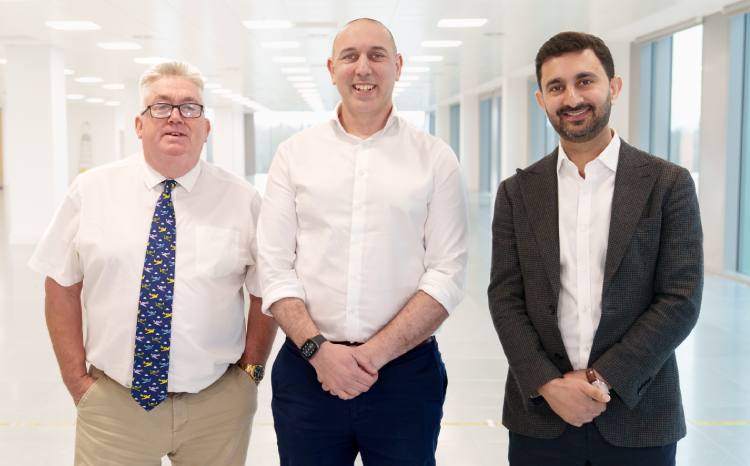Joe’s view: of capuchins and exemplars
- 13 September 2016

One hundred million years ago, when capuchin monkeys and humans shared a common ancestor, the concept of fairness was already well established.
This is why you can still see examples of the rage felt by unfair treatment in primates, and why it is experienced in such a visceral way in humans.
In a famous psychological experiment, one capuchin monkey who is being fed with perfectly acceptable cucumber becomes enraged when his next door neighbour gets grapes.
In this video (which I recommend you watch before reading the rest of this) you will see the rage which inequity can induce.
Anyone who has more than one child will be familiar the vehemence with which a small child with an otherwise sweet temperament can morph into a tantrumming Tasmanian devil when it feels the need to issue the battle cry: “But Dad, ITS NOT FAIR”.
My middle son, Fin, carries the nickname “Captain Fairness” for the Jekyll and Hyde transformation he would undergo in the face of any perceived injustice in favour of his siblings.
When It was recently announced that Lucy, the early hominid said to be the ancestor of all humanity, had died in a fall from a tree I wondered: ‘Was she pushed? By a sibling?”
Sibling rivalry
Think about it. In species like primates, that depend on cooperation for survival rather than being at the top of the food chain like a lion, the concept of fairness is required for survival.
The sibling who accepts a less than fair share is less likely to survive than pushier siblings. Consequently, the fairness gene is passed down preferentially and you might say is the root of civilisation itself.
From a sense of fairness comes the concept of justice and eventually the rule of law. This emerges in the earliest recorded, written legal code, which came out of Mesopotamia 2100 years BC (I saw the earliest surviving example during a recent trip to Turkey, carved on a tablet which sits in the Istanbul Archeology Museum).
The code of Ur-Nam,mu. The great leap forward for civilisation is encapsulated in a tablet of stone. You mess with people’s sense of fairness at your peril.
Consequently, when the concept of ‘global digital centres of excellence’ came up, seemingly from nowhere, many were sceptical. When it was announced that the selection criteria included an element of self-assessment, the fairness genes of many swung into action.
When I was asked as CCIO Network chair to take part in the international panel to review the bids, I was filled with dread. I worried to the network’s advisory panel that this was a poisoned chalice, and that because only the few could ever be made happy in this process the network risked its reputation by engaging in it.
However, the consensus of my wise colleagues was that the invitation to have CCIO and CIO representation in the process represented progress. We agreed I would join the panel. They were right.
A crazy process
A week later, I was sitting under a tree in Turkey reading 20 plus bid documents from budding centres of excellence. The process had clearly been put in place in a hurry; we were in the middle of the silly season and all over the world I could imagine CIOs and CCIOs falling out with their spouses.
The spouses: “We’re supposed to be on holiday”. Them: “I’m sorry, love, but ten million quid is ten million quid!”
The panel was chaired by NHS England’s new chief clinical information officer, Keith McNeil, and there was a highly esteemed group on review call (teleconference was the only way the meeting could include myself, in Turkey, and American colleagues including Bob Wachter).
Decisions were extremely hard to make and there was an acknowledgment that the timetable was politically driven; the health secretary needed something to announce at the Health and Social Care Expo in Manchester. It was bloody hard work. I don’t think I was alone in thinking it all a little crazy.
The Wachter Review
In fact, none of it really made sense until I was sitting in my clinic last Wednesday and watching Wachter’s excellent presentation via periscope (thank you whoever streamed it). After which, I read his equally excellent report.
With refreshing candour, Wachter gave the speech he originally intended to give in June, but which was pushed back to September by purdah surrounding the Brexit referendum.
He explained that the NHS was not spending enough money to properly digitise the NHS by 2020 and advised pushing the target back to a more realistic 2023. He also explained that not all trusts (and remember his brief was only to review the acute, hospital sector) were ready to go digital.
He then described three classes of trust. The A list were already well on their way and could become fully digital, the B list were part way there and could be helped with a little extra cash, and the C list weren’t ready – so no money would be wasted on them at this point.
He said the A list had “morphed into the global centres of digital excellence programme”. So this was why the timetable felt crazy. The idea had been to start the process in June, but it got stymied by politics.
Ok, some bits are still not fair
C’est la guerre. I can’t argue with the fact that not all NHS IT departments are created equal. I’d also agree it is better to do something properly in a few places than do something half-arsed everywhere (NPfIT).
Hopefully, as we go forward, processes can be refined and made more transparent. The bottom line, however is that roughly half of trusts are not getting a grape, nor will they get cucumber.
Some of us, like my own mental health trust, Northumberland Tyne and Wear NHS Foundation Trust, were not even considered in the review as we were “out of scope”.
So, despite being one of only two mental health trusts to be rated “outstanding” by the CQC, despite having been paperless since 2012 and wireless and mobile since 2013, despite having appointed a CCIO in 2008, and despite my IT department enabling me to work securely from anywhere in the world (including from an aeroplane at 35,000 feet) we haven’t yet had the chance to bid to become a global digital centre of excellence.
Not even a shot at the A list. Nor have any of the 50 other mental health trusts, many of whom are already paperless and ready to take digital to the next level, putting services for patients truly online. Parity of esteem? I’m sure this will be addressed in the next round of funding.
Anyway, as Robert Louis Stevenson said: “It’s not the cards you are dealt that make the man, but the ability to play a bad hand well.”
Looking for an NHS way forward
So let’s look on the bright side. Bob Wachter’s report points out that success is impossible without more investment in CCIOs, that the digitisation of the NHS is currently underfunded and that paperless by 2020 is “unrealistic”.
Or is it? It is clearly unrealistic done the American way and at American prices; and would probably result in what we see in the States, a small number of very rich system suppliers dominating an unhappy clinical market.
What if the C list got their act together and went down the open source route? The nation turns its eyes to Taunton and Somerset. England’s Open Source Global Digital Centre of Excellence.
About the author: Joe McDonald has been a practising NHS doctor for 30 years, is a former NHS trust medical director and a former national clinical lead for IT. He is chair of the CCIO Leaders Network, chief clinical information officer at Northumberland Tyne and Wear NHS Trust, a director of the Apperta Foundation and has recently been appointed director of Connected Health Cities in the North East and North Cumbria, home of the Great North Care Record.




